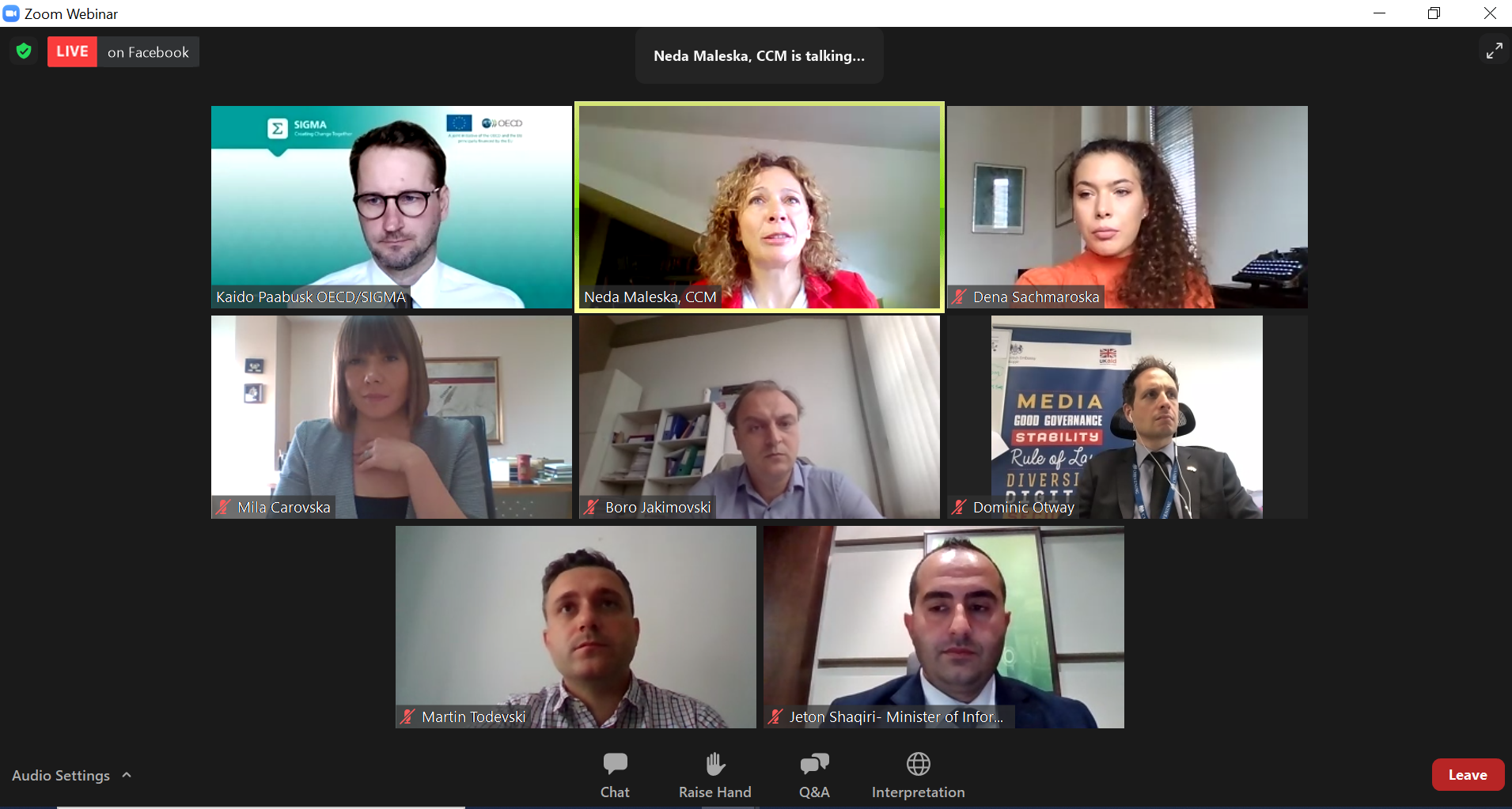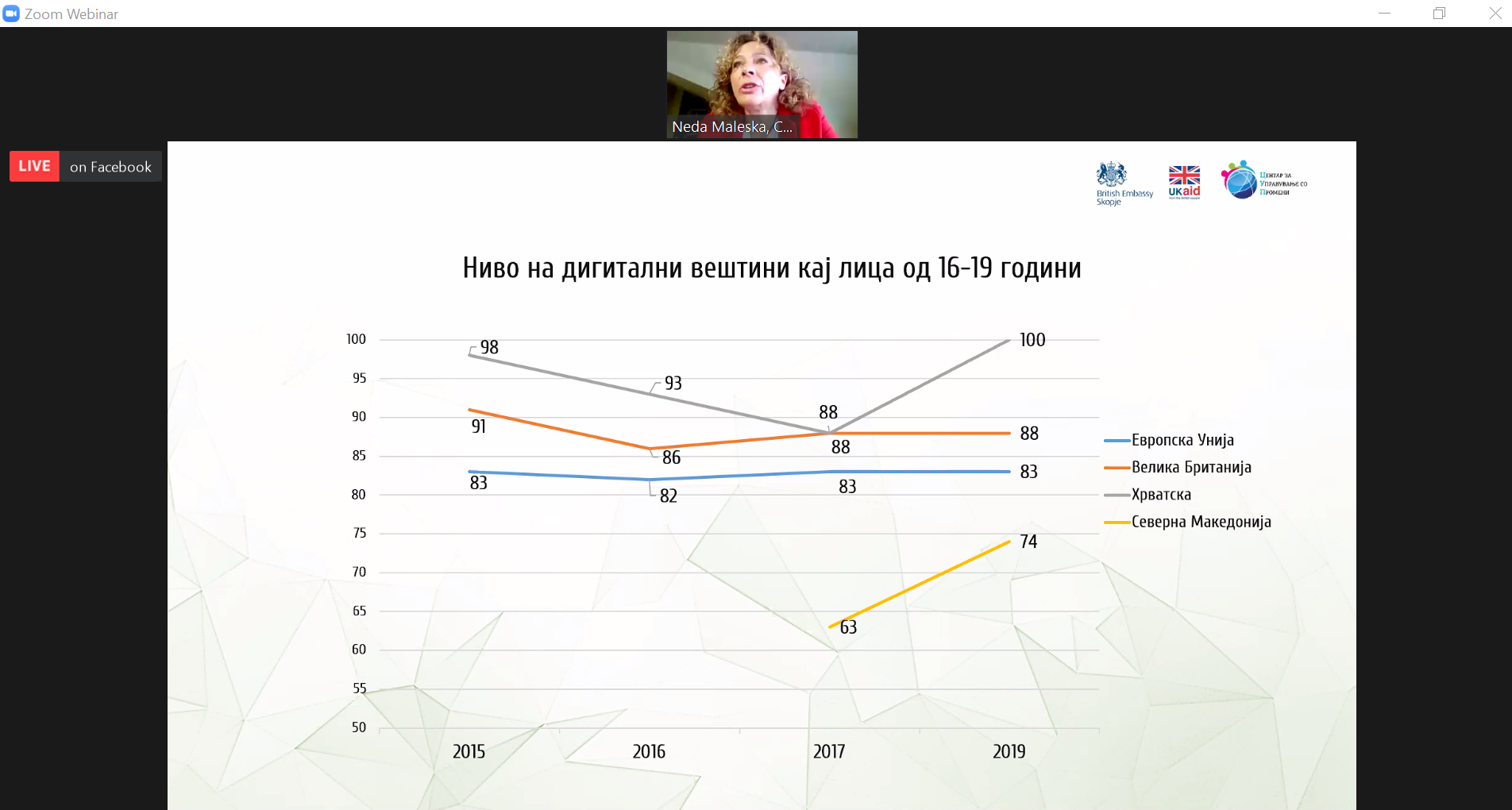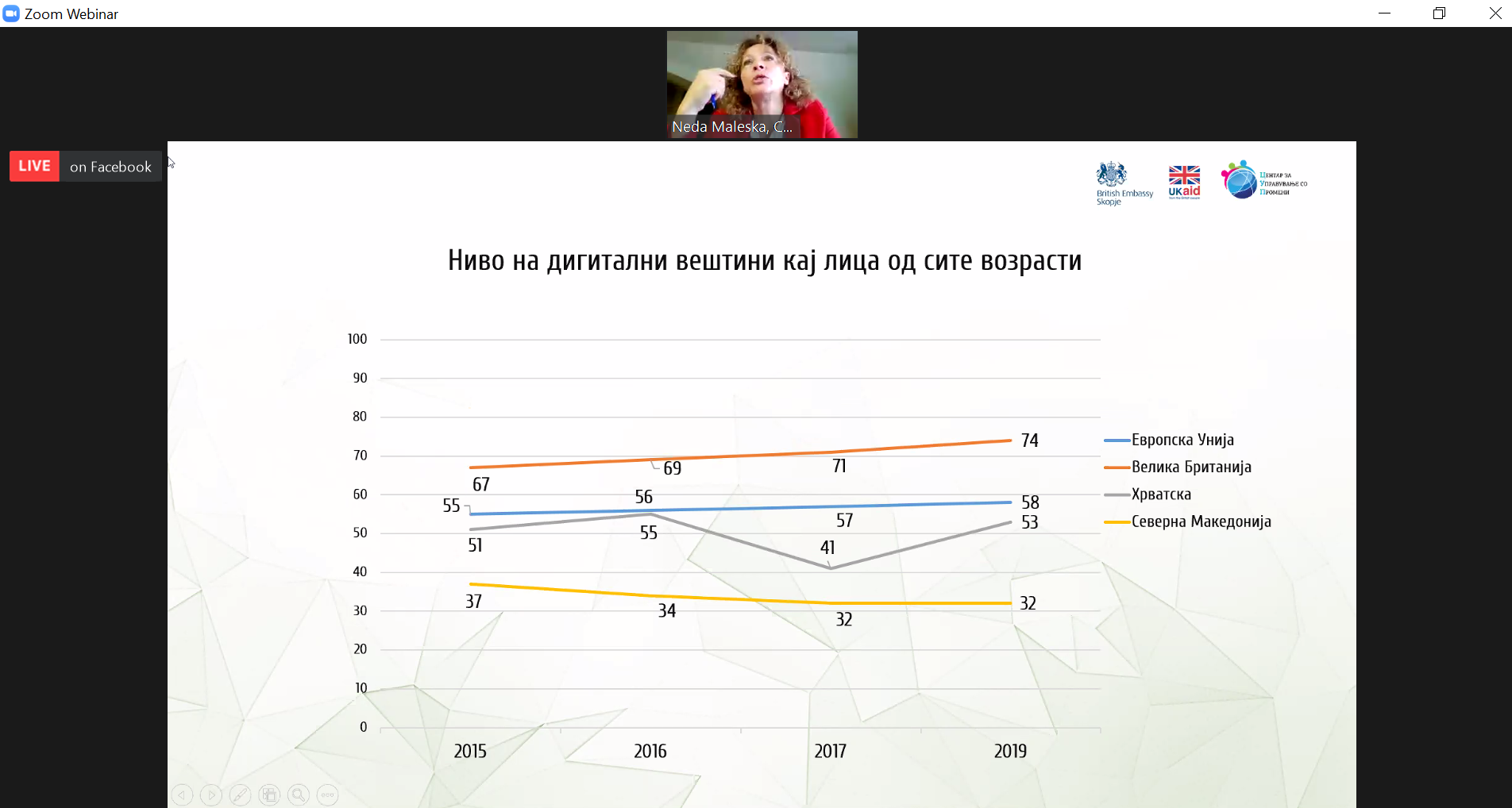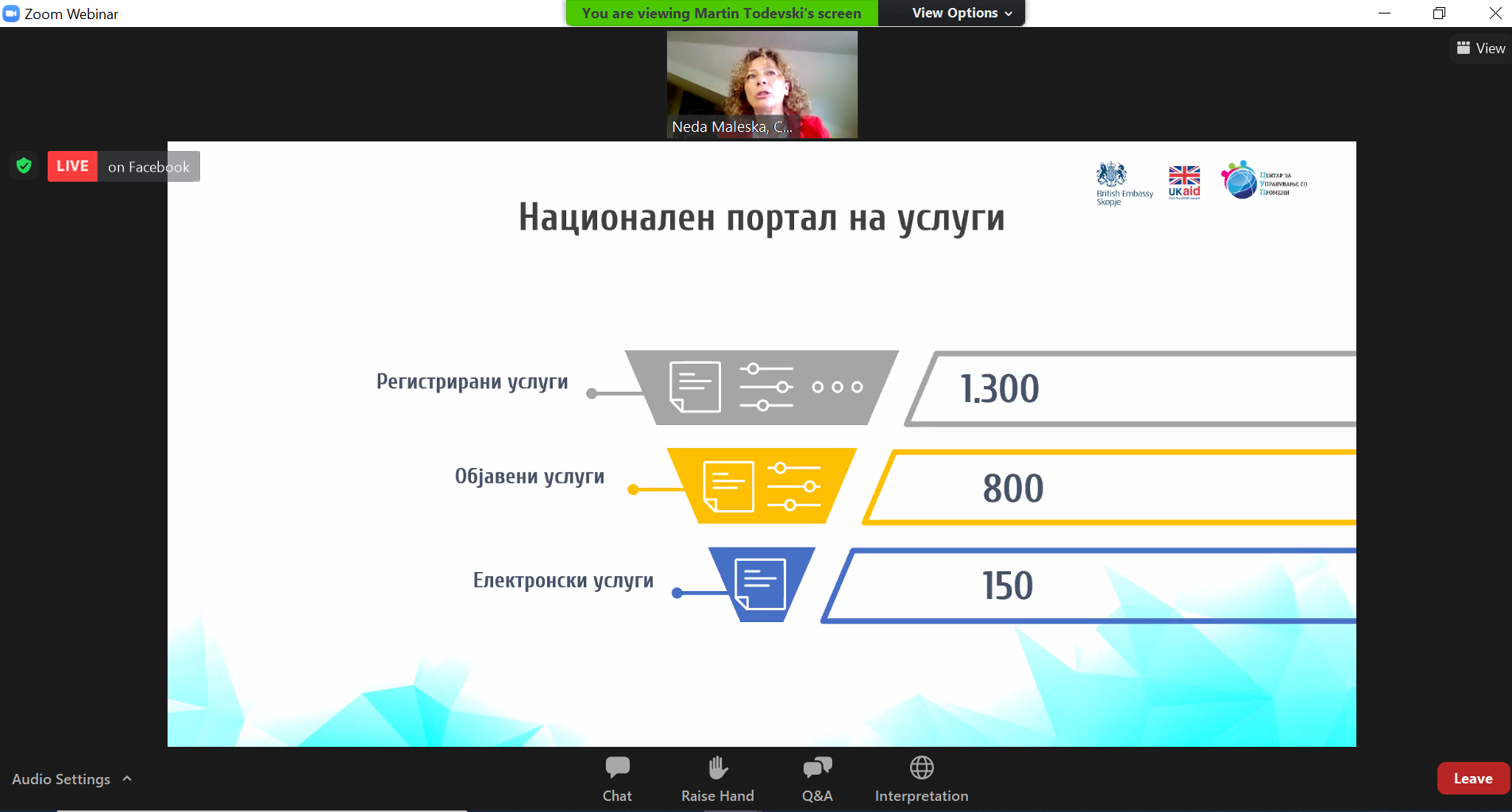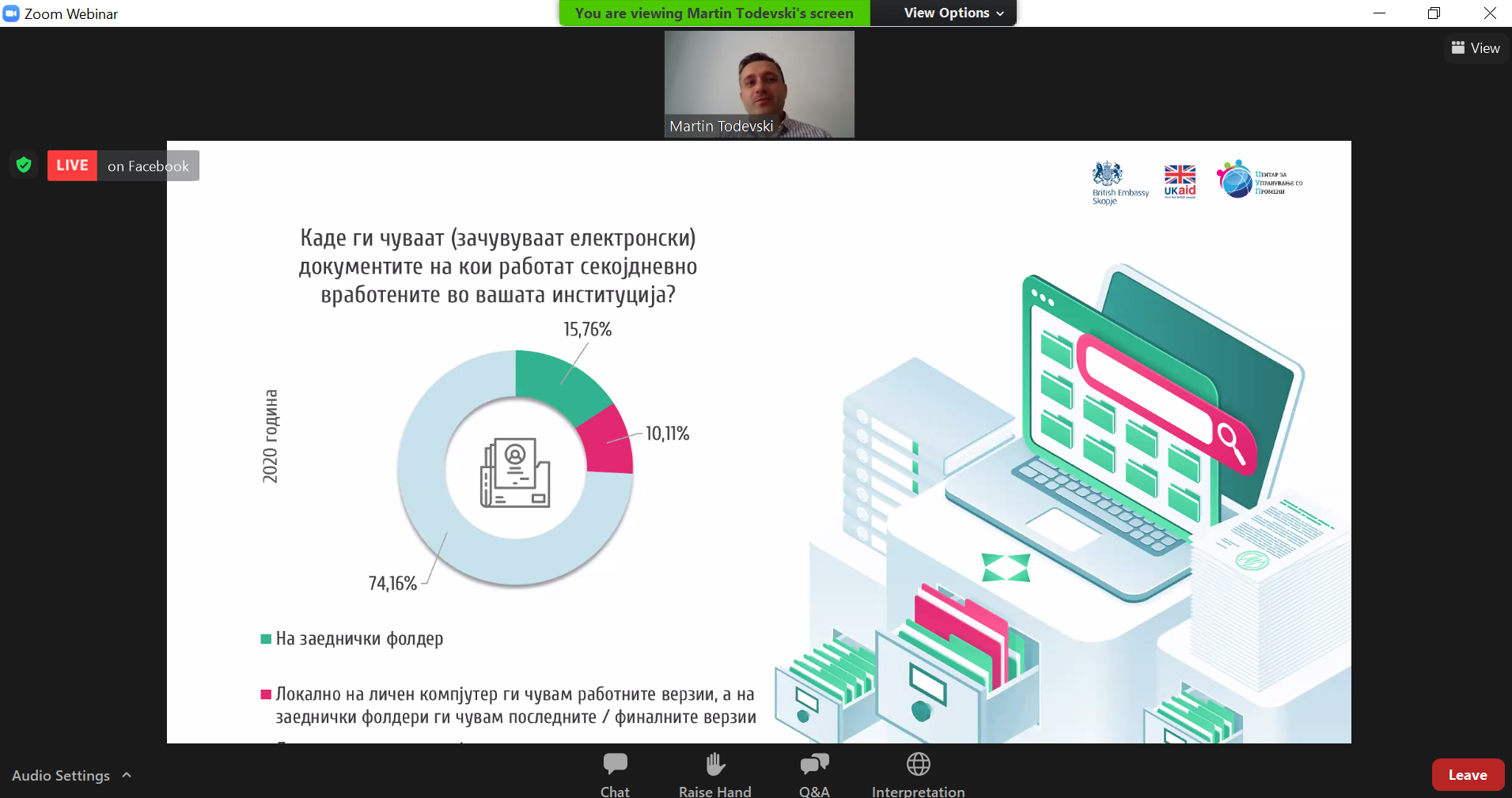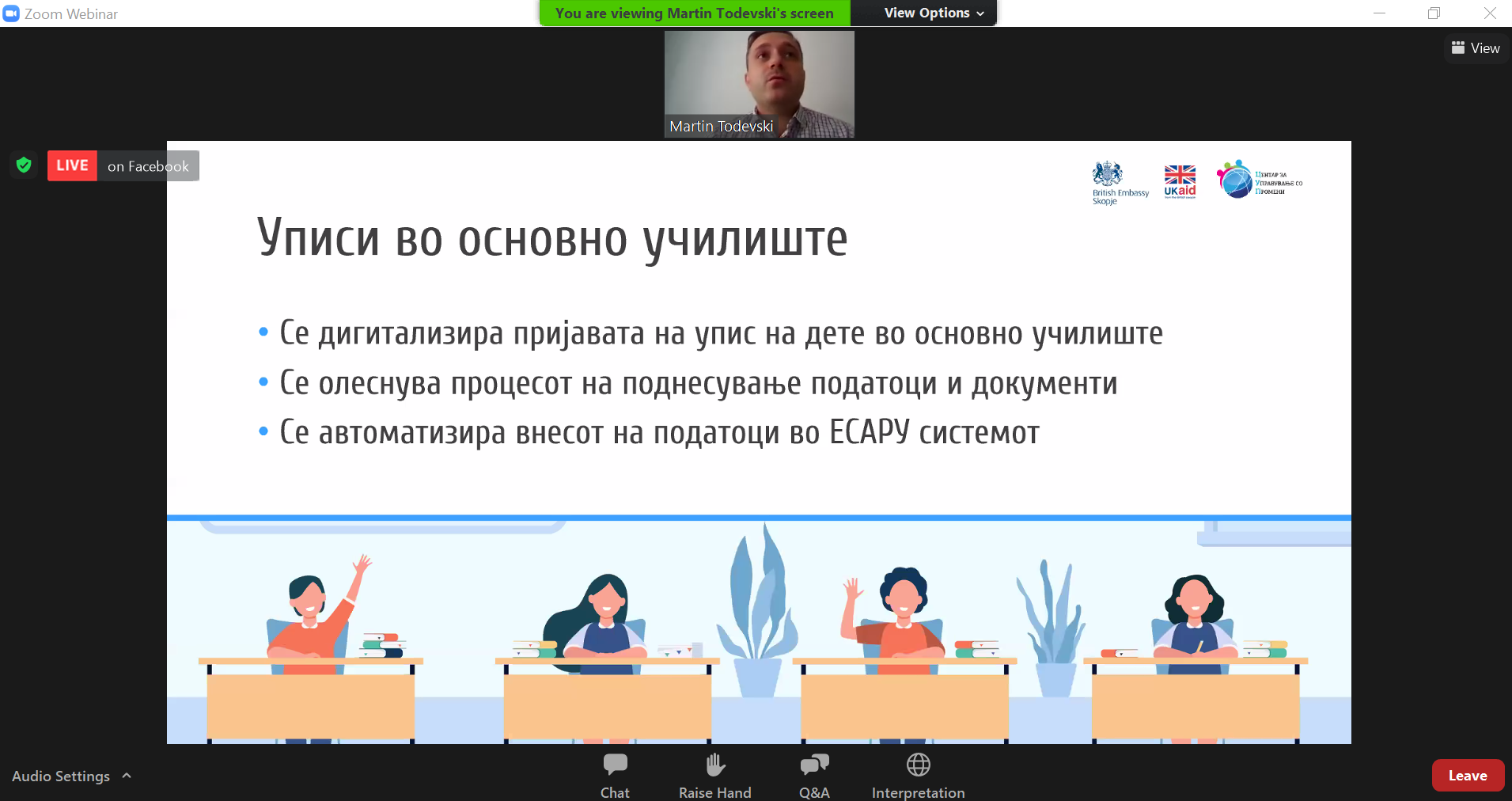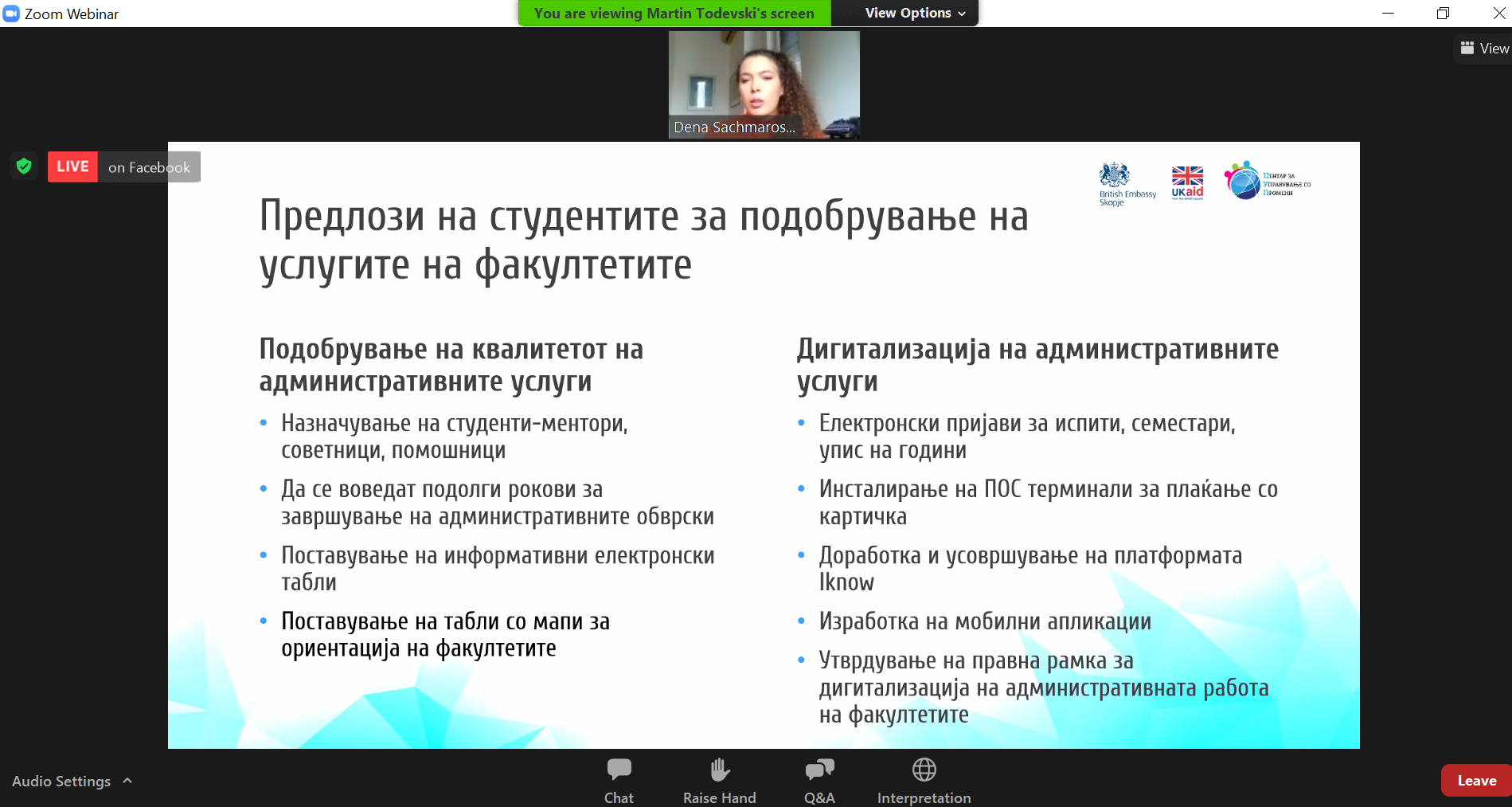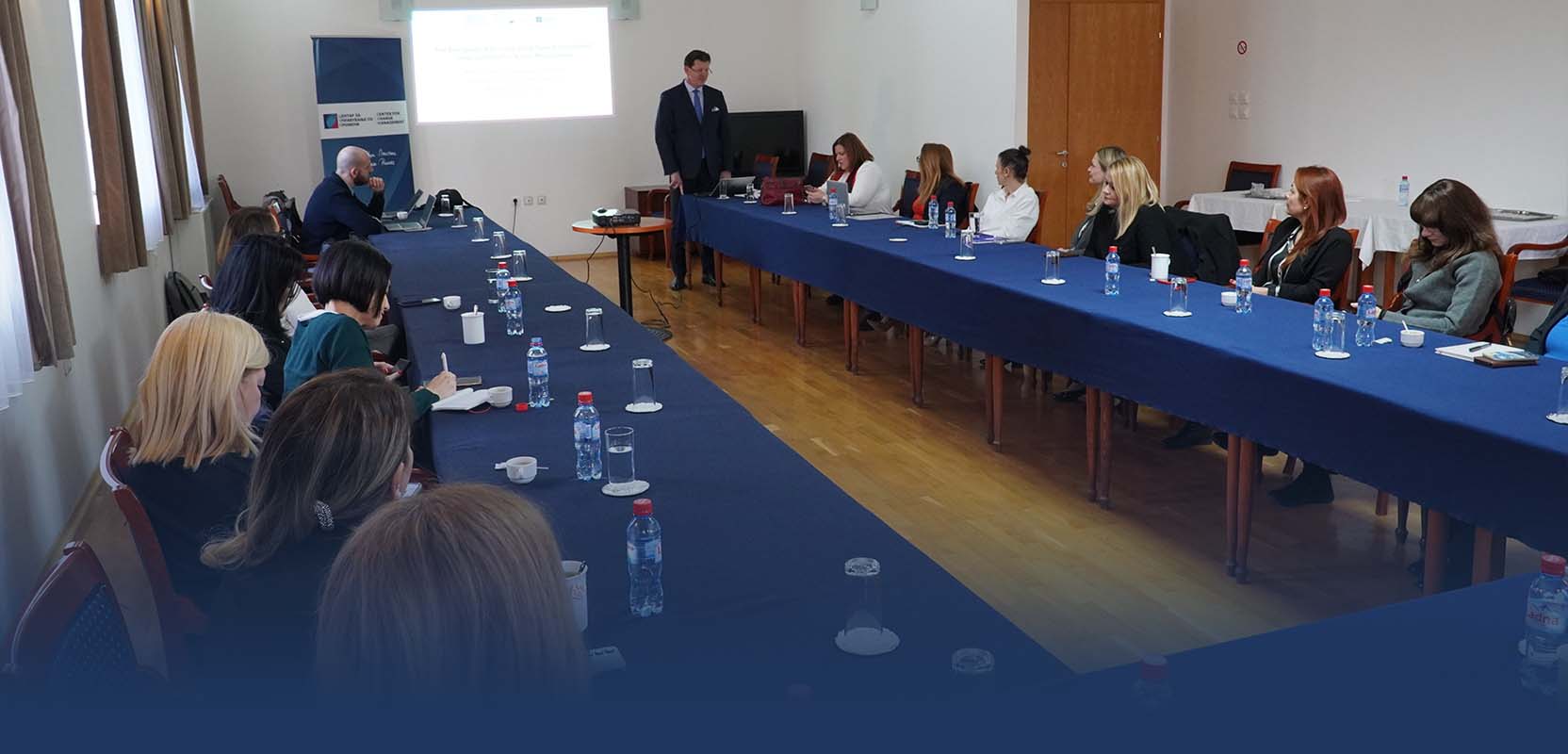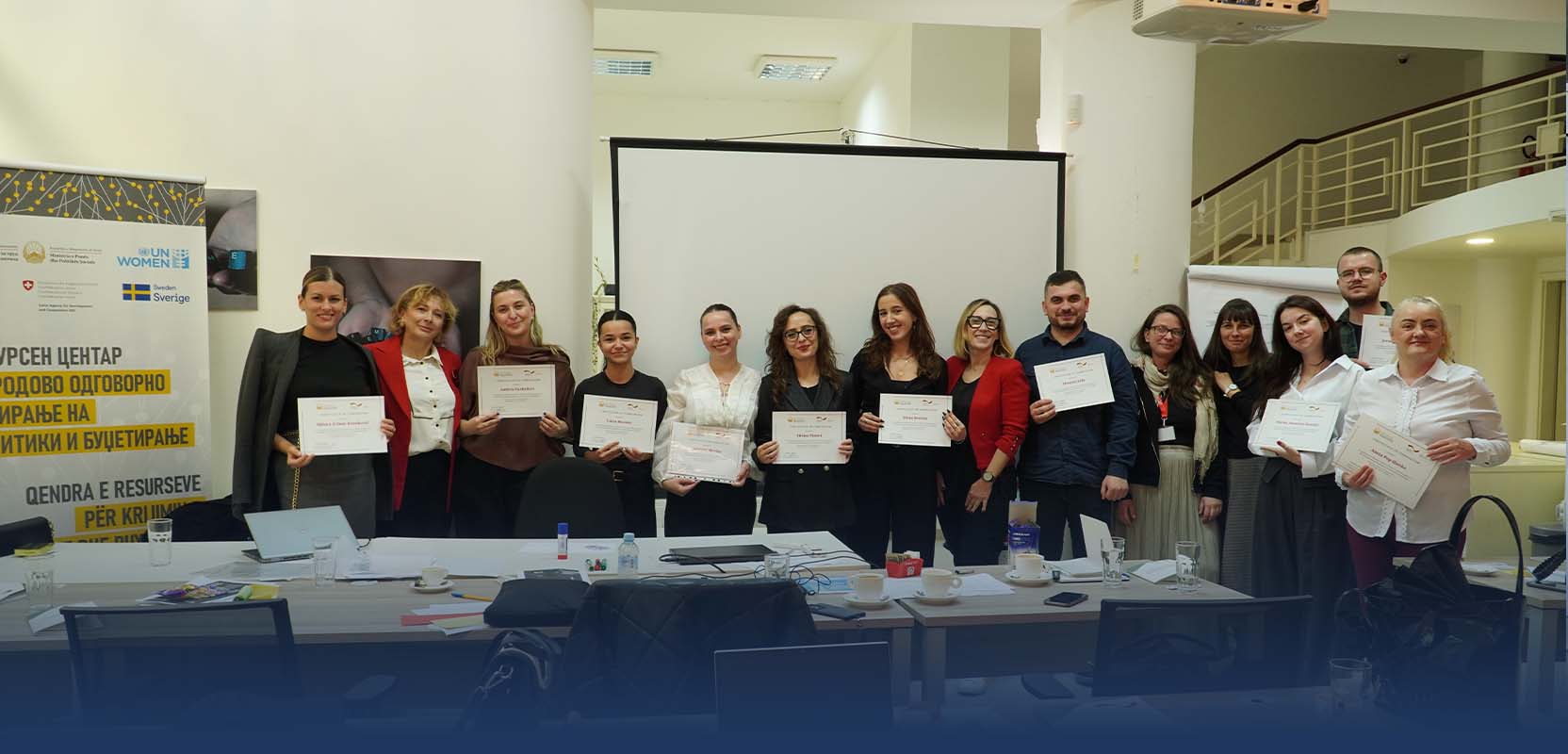News
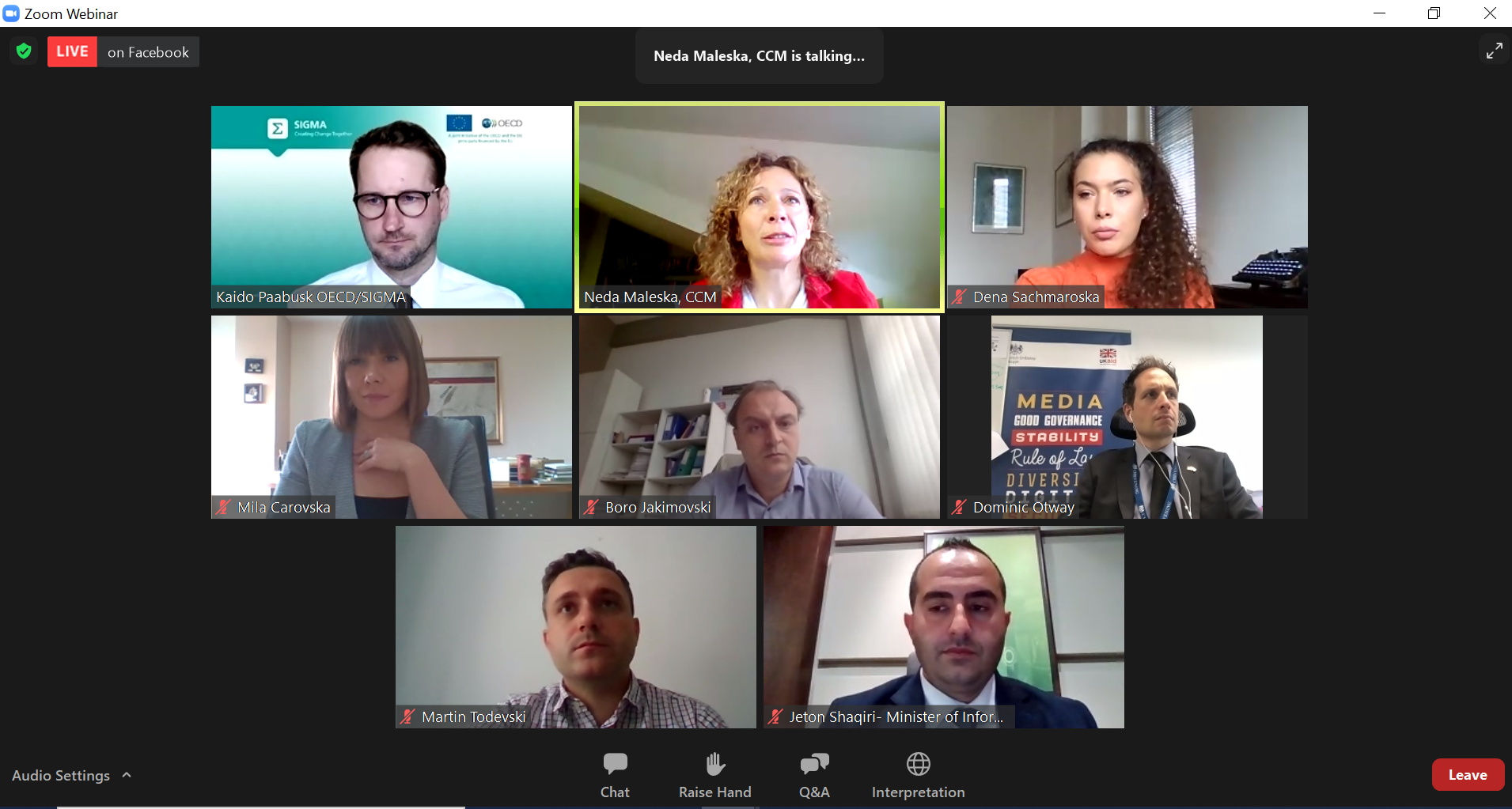
Conference: "Digitalization of services in the field of education"
Date: 15.04.2021
The Center for Change Management (CCM) held an online conference "Digitalization of Services in the Field of Education" addressed by the Minister of Education and Science Mila Carovska, the Minister of Information Society and Administration Jeton Shaqiri, the Deputy Ambassador of the United Kingdom of Great Britain and Northern Ireland, Dominic Otwei.
Digitalization is a priority in the work of the Ministry of Education and Science, and the cooperation with CCM and the British Embassy is an example of fast and efficient digital transformation of public services - said at the beginning of the conference, Minister Mila Carovska.
"We are introducing the possibility for a larger number of online services that are of interest to every citizen, and provides time savings, but also health protection, especially in times of crisis. "For example, the nostrification of diplomas can be completed electronically today in one day, instead of waiting for several months," said Minister Mila Carovska.
According to the Minister, it is necessary to work on raising awareness about the new services because there is distrust in the electronic use, so many students still come to the Ministry of Education and Science to be sure that they have applied and to raise an archive number.
The Minister of Information Society and Public Administration, Jeton Shaqiri pointed out that according to the current pace of life, the process of digitalization of services in education is an obligation for public institutions. He pointed out that the national e-services portal is constantly being upgraded with many new services in various fields.
"By the end of June, we envisage 30 new services for the citizens, most of which MISA prepares in cooperation with the Ministry of Interior, PRO, as well as the Registry Office. "I am announcing a recent opportunity for availability of public services through mobile applications, and the registers needed for the development of these services will be digitized," said Minister Jeton Shaqiri.
The Minister of Information Society believes that the Covid-19 pandemic during the last year has contributed to the increase of IT skills, but also that with joint efforts more must be invested because the process of digitalization is important for all.
The Deputy Ambassador of the United Kingdom, Dominique Otwei, as an example of the importance of introducing digital services and pointed out this online conference which in a pandemic would not have the opportunity to be held differently.
"The introduction of digital public services enables a more direct connection between the ministries and the citizens, greater efficiency in the provision of public services, as well as reduction of bureaucracy, but also the potential for corruption. "Digitalization is also an incentive for innovation, and it provides more free and better quality time for everyone," said Deputy Ambassador Otwey.
88.8% of young people prefer electronic, as opposed to 11.2% who chose over-the-counter services, according to a CCM survey presented during the conference. The student Dena Sachmaroska on behalf of the group of students who participated in the implementation of this research presented the problems and challenges that academic citizens face in receiving services at the faculties, as well as the opportunities and solutions offered by digitalization in order to overcome them.
The professor of FCSE, Boro Jakimovski followed up on this by emphasizing that the presented results are the best proof that the fast and efficient transformation towards the digital society is necessary.
"We need a strategy, coordination between the institutions, certain legal changes and of course adjustment of the human potential within the institutions. In a word, the cooperation and management of the resistance that occurs among some employees in public institutions is crucial, but also a visible synergy between the public, private sector and the academic community on this topic, said Professor Jakimovski.
The need and positive effects of digitalization of education services were also discussed at the conference by SIGMA Senior Policy Advisor Kaido Pabusk, and the results of the project were presented by the Executive Director of CCM, Neda Maleska and the Program Coordinator at the Center, Martin Todevski.
Kaido Pabusk from the SIGMA mission emphasized that in Macedonia, but also in most other countries, digital services are first developed and applied for businesses, and then for everyone else. However, according to him, it is necessary to provide efficient digital services for all, because there is no difference whether the services are intended for legal entities or individuals, taking into account that they are based on the same principles.
"Good digital services cannot be provided if there is no good digital infrastructure, as well as if citizens do not have access to online devices and the Internet. Also, there is no point in digitizing inefficient services or processes that are not in line with the needs of the citizens. This Covid crisis has shown us that digitalization is something we can not avoid and digitalization is becoming one of the biggest priorities.
"Digitalization, however, cannot cover everything, especially in education, so it is important to know what part can be digitized, such as these services that are offered under the Project of CCM."
Savings from additional budget costs because now in a simple way the employees of the Ministry of Education and Science can announce vacancies and other public services - in this way Martin Todevski, program coordinator at the CCM, presented the benefits of the functioning of the newly developed platform e-services. The application process is simplified, and by creating your own profile, each applicant can follow the course of the submitted cases and receive notifications. Also, as informed by the Center, the automatic evaluation is a new opportunity that is expected to speed up the procedure and make the administration more resistant to pressure and corruption.
The National Portal for e-services offers 1,300 services, of which 800 services have been published at the level of information, and practically 150 services are available for the citizens with the possibility to apply only in digital form - the analysis of the CCM showed. The utilization of these digital services is very small because the services are not fully digitalized, said Neda Maleska, Executive Director of CCM.
"Digitalization is extremely important in and out of this crisis, as well as the continuous improvement of digital literacy of every citizen. In addition to paper form, all public services should be available in digital form which leads to greater utilization of public services by citizens, as well as better quality. Continuing to invest in digitalisation undoubtedly leads to building a more resilient society and strong opportunities to tackle corruption as an additional effect on the overall process. Finally, very importantly, it is necessary to direct the process of digitalization to young people. I appeal to the faculties to adapt to these processes, which will reduce to a minimum the administrative-bureaucratic processes and barriers that students face ", summed up the executive director of the Center for Change Management, Neda Maleska.
The conference presented the electronic services developed for the needs of the Ministry of Education such as nostrification of diplomas from primary, secondary and high education abroad, electronic enrollment in primary school, applying for scholarship competitions, applying for financial support for renovation of school buildings , and the developed background software enables electronic management and resolution of cases by the commissions in the Ministry.
The services were developed within the project "Digitalization for business continuity in the public sector", funded by the Government of the United Kingdom, with the support of the British Embassy Skopje, and implemented by the Center for Change Management, in cooperation with the Ministry of Information Society and administration.
Recent news
Working meeting with the Ministry of public administration
Date: 11.12.2025
Is the rule of law possible with a commercial official gazette?
Date: 03.11.2025
